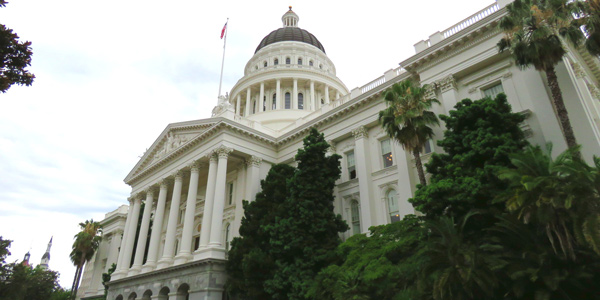By Jason Fordney
California lawmakers moved forward with several pieces of energy legislation last week, but hotly watched items such as a 100% renewable energy standard and CAISO regionalization seem to be set on simmer.
There has been no movement this year on SB100, former State Senate President Pro Tempore Kevin de Leon’s 100% renewable energy bill that was front and center as the 2017 legislative session drew to a close. (See CAISO Regionalization, 100% Clean Energy Bills Fizzle.) SB100 has seen no votes since the Assembly Appropriations Committee last September.
And AB813, legislation that would regionalize CAISO, sits in committee during this session as other, higher-profile issues heat up. (See Calif. Lawmakers Relaunch CAISO Regionalization.) The regionalization language is currently in the Senate Rules Committee and the next step is a referral to the Energy Committee.
The U.S. Senate Democratic primary between de Leon and longtime Sen. Dianne Feinstein is taking up a great deal of political oxygen and an unrelated series of sexual assault controversies are another major distraction in the Capitol. (See Wildfire Costs Ignite Worry at CPUC, Legislature.)
On Thursday, the Assembly Utilities and Energy Committee, chaired by Assemblyman Chris Holden (D) passed several pieces of legislation, including:
- AB2068(Chu), to Appropriations: It would require IOUs to evaluate the feasibility of discounting rates for public schools by at least 15% and for the California Public Utilities Commission to determine whether to adopt the discount. It requires the CPUC to direct IOUs to evaluate and report on the feasibility and economic impact of establishing the discounts. The evaluation must include commercial rate increases for the past five years that affected schools and the economic impact to other ratepayers if all public schools receive the discount. The bill requires the CPUC to submit the report to the legislature by Jan. 1, 2020.
- AB2208(Aguiar-Curry) to Natural Resources: The bill requires investor-owned utilities, community choice aggregators, retail energy sellers and publicly owned utilities to procure an unspecified percentage of their resources from geothermal, biogas or biomass facilities. An unspecified amount would have to be procured from the Salton Seageothermal resource area, 10 generating plants producing 327 MW in Southern California’s Imperial Valley. According to an author’s statement, “AB 2208 will make it easier to reliably integrate higher amounts of renewable energy generation into the grid by requiring the procurement of ‘grid-balancing’ renewables, such as geothermal and bioenergy.” It would allow bioenergy facilities open to continue accepting wood waste as a forest fire management measure.
- AB2515(Reyes) to Appropriations: The bill requires the CPUC to report to the legislature pending and previously approved changes to IOU revenue requirements over at least the past five years that resulted from requests by IOUs and CPUC decisions and resolutions. It also requires IOUs seeking a rate change to disclose estimated rate and bill impacts on each customer class.
- AB2831(Limon) to Appropriations: Requires the CPUC, in consultation with the Office of Small Business Advocate within the governor’s Office of Business and Economic Development, to ensure that adequate marketing, education and outreach are undertaken to enable small business customers to fully participate in demand-side energy management programs.





